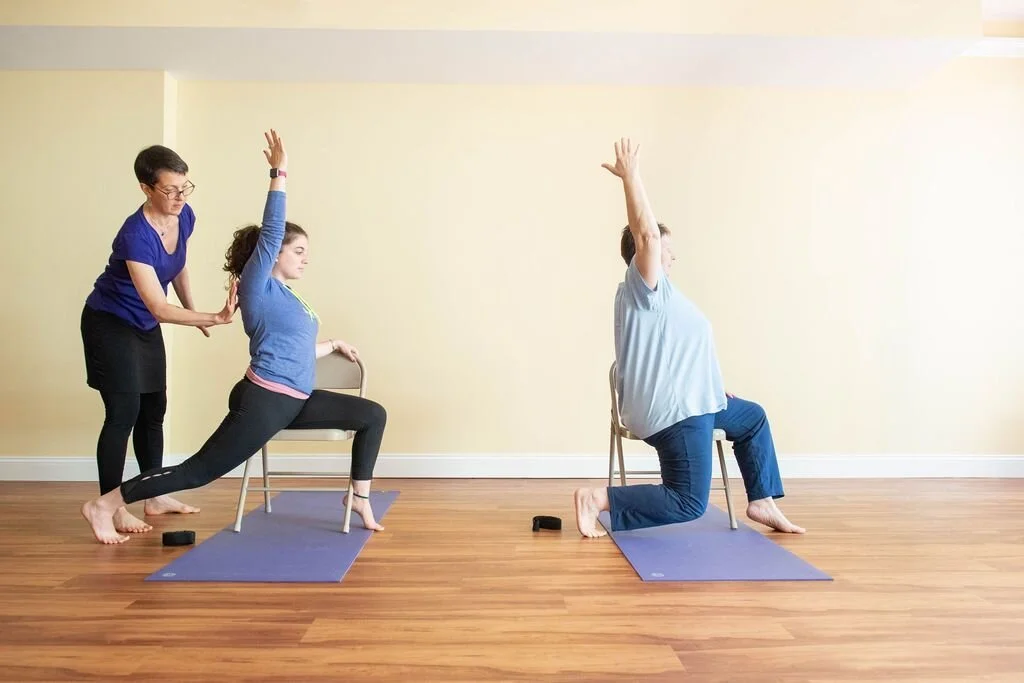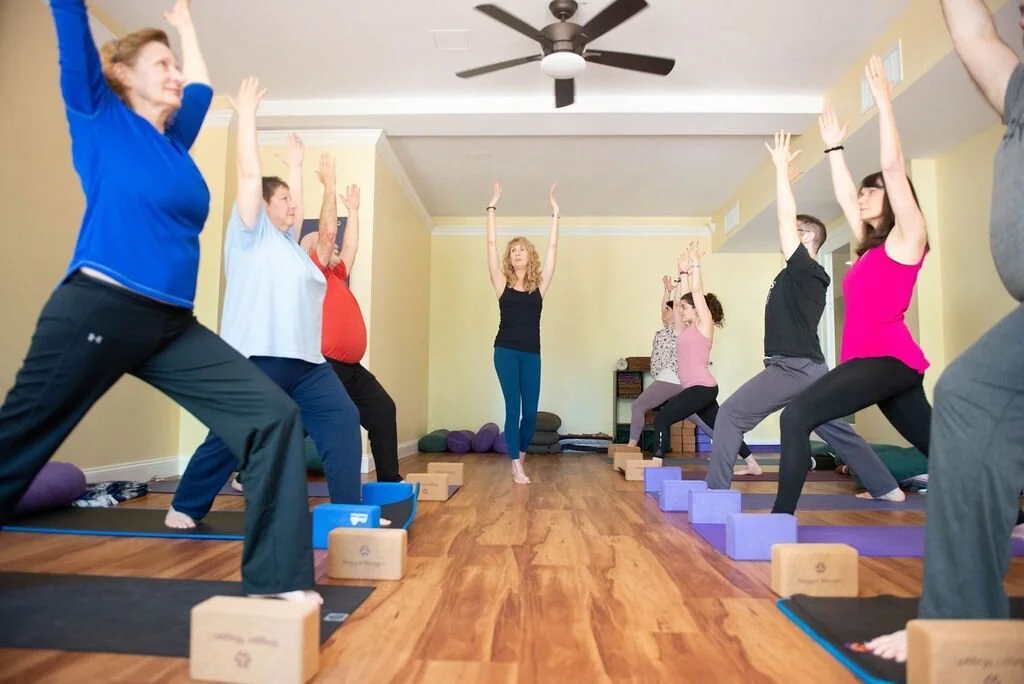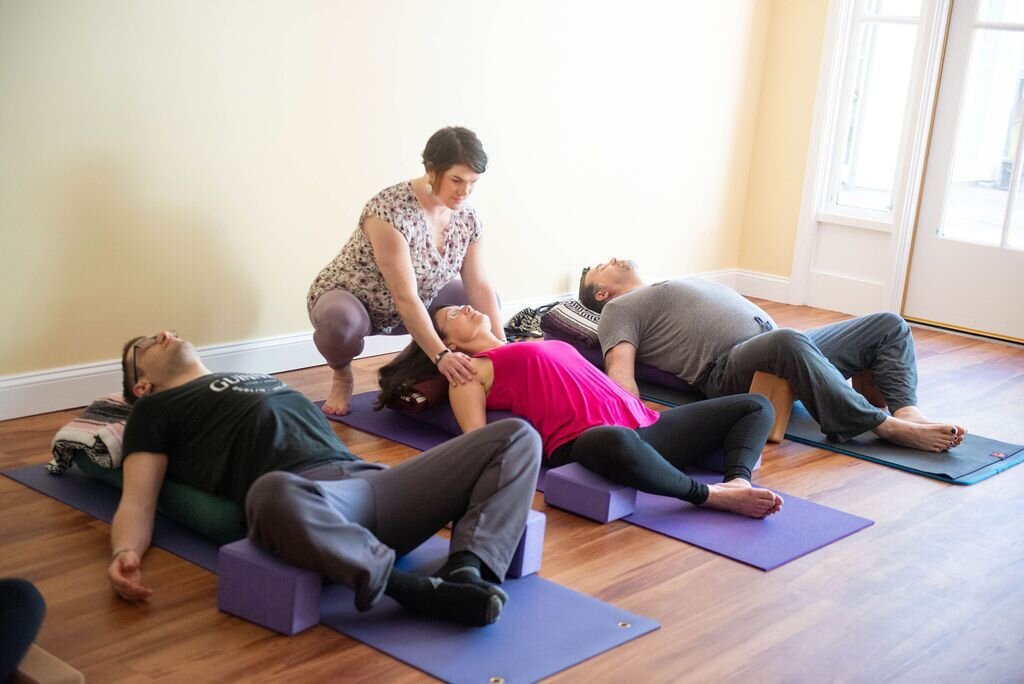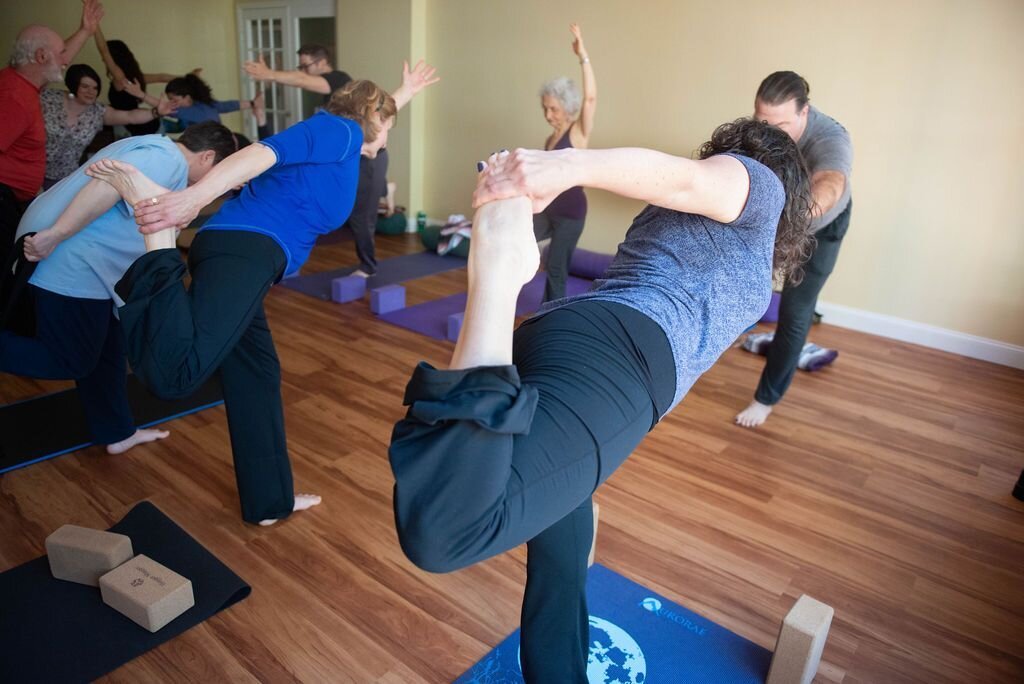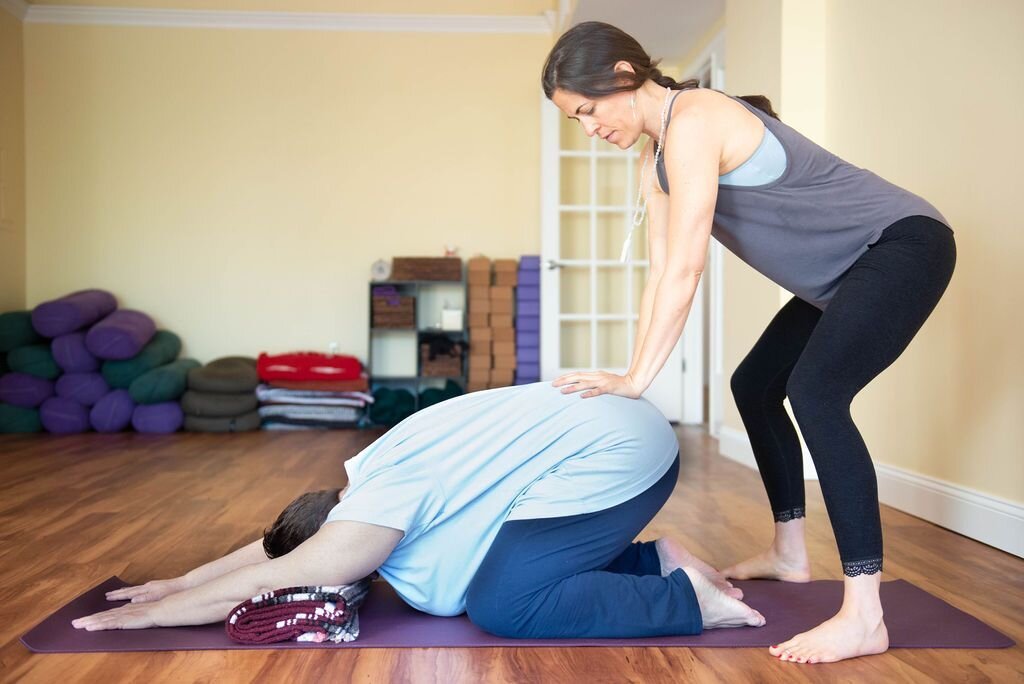The Importance Of Having A Beginner’s Mind
Written by: Michele Lyman, RYT 500
“In the beginner’s mind, there are many possibilities,
but in the expert’s there are few.” Suzuki Roshi
When I first started practicing yoga in 2000, I can remember my teacher suggesting that we come to the mat with a “Beginner’s Mind” and thinking, “what the heck does that mean?” I wasn’t sure about anyone else, but I was there to master the poses and “win” at doing yoga.
Can you relate?
It took a few years, but I finally realized that the point of yoga was not to perfect the poses and get a gold medal. The point is to explore and enjoy the journey as it unfolds, and embracing a beginner’s mind is a key first step to achieving that. If that seems confusing, don’t worry! Today I’m going to share exactly what it means to have a beginner’s mind both on and off the mat so you can open the doors to all sorts of possibilities in your life and the lives of others.
Beginner’s Mind On the Mat
B.K.S. Iyengar is considered one of the foremost yoga teachers in the world. He practiced headstands well into his 80s but also shared that he had not perfected mountain pose - which is not a very physically demanding posture at all. So how come this “master” of yoga did not feel he mastered the basic poses? It’s because the second you think you’ve achieved mastery, you stop growing and learning.
In the book, Basic Guidelines for Teachers of Yoga, BKS and his daughter Geeta Iyengar said, “The goal of practice is always to keep our beginner’s mind.”
Take a moment to think back to when you first started yoga (and for some of you that’s right now!). You had no idea what to expect, so you trusted the teacher, listened intently and were genuinely curious to explore your practice! The amount of possibilities and potential for growth was endless and you were probably super excited to dive in each time you showed up for class.
Now, imagine you feel super confident in a pose and consider yourself “the best” at it. The second the teacher offers instruction, you probably wouldn’t listen because you already “know” what you need to know and therefore shut off the opportunity for growth. And, if you happen to be doing the pose in an unsafe way, but you think it’s fine and aren’t listening, you could set yourself up for injury. When you think you know it all, you tend to be more closed-minded … and honestly not a lot of fun to be around.
Or, imagine you absolutely hate a pose because you “can’t do it”. You feel defeated and think “I hate this pose so I’m not doing it” before you even try it. This negative attitude causes you not to listen or even give it a shot, removing the opportunity to grow and learn. And, ironically enough, usually the poses that are the hardest are the ones we can learn from the most and therefore need to practice the most for our physical and mental wellbeing.
Personally, I hate reverse plank pose. You know the one - hands behind your back, shoulders over wrists, hips and belly lifted to the sky with your legs out straight in front of you? It really bothers the back of my knees and I can never seem to get my big toe mounds to the ground. So, when it’s offered, I usually just practice reverse table top instead.
But lately I’ve been pushing myself to have a beginner’s mind as I approach this posture. Just the other day I explored soft bending my knees and charging up my thighs to protect my joints and I was able to push my big toe mounds to the floor! The second I released from the pose I felt elated and joyful - I had done it! I achieved something amazing! Thank you beginner’s mind.
Any student of mine has heard me say multiple times, “pretend like you’re four.”
Children see the world as new and exciting and they’ll usually try anything at least once to experience it! If it’s a posture you hate or one you think you’ve perfected, how would your attitude shift about the upcoming experience if you pretended like you were four? How would you approach it differently or feel about trying it? And then ask yourself, “what can I learn from this pose?” There is something extremely powerful about asking this question from a pose that you’ve practiced a million times.
Beginner’s Mind Off the Mat
When we embrace a beginner’s mind off the mat and into our daily lives, that’s when the true magic starts to happen. As humans, we are wired to create habits - we identify something, label it and move the heck on. As my old neighbor would say right before leaving our house, “I gotta go - I got *crap* to do.” We assume what our experience will be, or the reason for someone else’s behavior, we judge and then we move on.
But life is rarely so black and white.
Imagine you are waiting for a friend to meet you for dinner and they are 10 minutes late. If you assumed they were late because they did not respect your time and judged them for it, you would spend those 10 minutes feeling frustrated and creating stress for yourself. And, when your friend did show up, you might say something that you would regret later.
Now imagine you are waiting for that same friend but you find yourself at peace with not knowing why they are late, and therefore are open to the various reasons. Instead of sitting there frustrated, you might find yourself enjoying the 10 minutes of alone time or experiencing the here and now around you. When they arrive and explain that they were caught in traffic, you simply smile and become excited that they are now there with you.
The other thing to remember is that everything in our life is impermanent. Impermanence says that anything born out of causes and conditions will change. Not only will our bodies change but so will our experiences, our attitudes, our views, and our opinions. Since we are constantly changing, we can’t assume we know what our experience will be or whether we’ll like or dislike something just because of the views we had yesterday. At this moment, we may feel differently. Instead of assuming, be open to what is happening here and now so that you can experience situations, people and yourself in new and exciting ways.
So there you have it. When you are a true beginner, the world of possibilities opens to you and you can really learn anything. Beginner’s mind is all about letting go of your preconceptions in order to focus on the here and now - the present moment. It is in the present moment where you can explore and get curious about a world of knowledge and experiences that you never knew existed.
If you are ready to start practicing your beginner’s mind, be sure to take advantage of our in-studio only summer special offers! We can’t wait to help you explore your practice!

